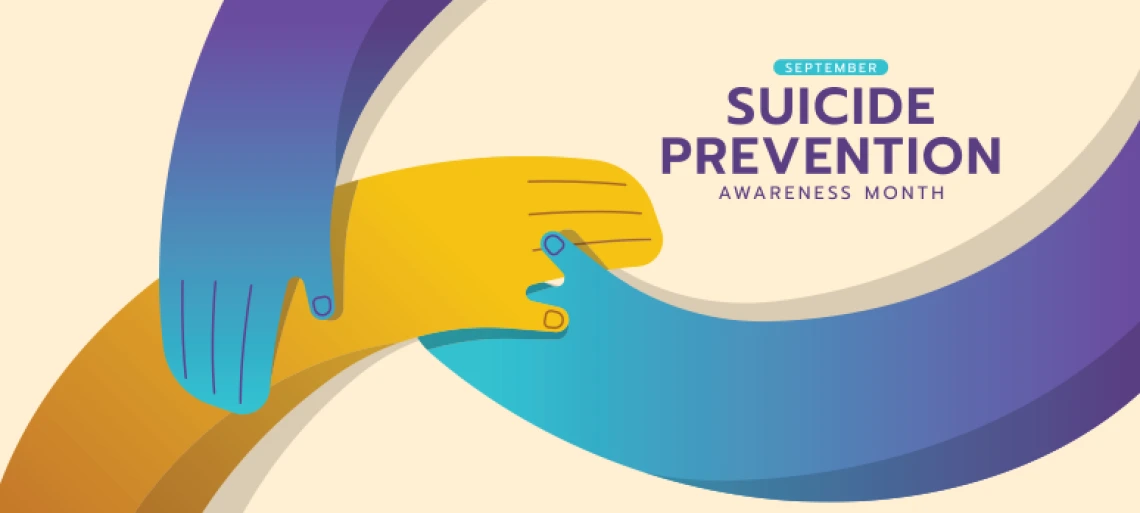
Each year, September is recognized as Suicide Prevention Month in the United States. This month provides individuals and organizations with a dedicated space to raise awareness, share resources, and focus on helping those reaching out. As stated in the Surgeon General’s Call to Action to Implement the National Strategy for Suicide Prevention, “Although suicide is a complex behavior that can be influenced by many different factors, suicide is preventable. Suicide prevention requires a comprehensive approach that combines multiple strategies to reduce risk and strengthen protective factors at the individual, relationship, community, and societal levels.”
One way the University of Arizona community is focusing on suicide prevention is by offering Question, Persuade, Refer (QPR) Suicide Prevention Gatekeeper training sessions. QPR is designed to help participants learn to recognize the warning signs of a suicide crisis and to question, persuade, and refer someone to help. These training sessions are provided by a team of individuals from across campus with different backgrounds and experiences in the field of suicide prevention. One of those trainers, Amiebelin (Amy) Amaya from Campus Health, shares her experience as a QPR instructor and how impactful this training can be.
“I’ve had the privilege of facilitating QPR (Question, Persuade, Refer) training for just over two years, and my commitment to it has remained strong since day one. My journey began when I took the course myself and experienced firsthand the profound impact this training can have having come from a culture where mental health as a whole is a taboo topic.
"Suicide remains one of the leading causes of death across all age groups, and QPR equips individuals with practical tools to respond with empathy, awareness, and action. It offers a positive and proactive approach to a topic that is often difficult to navigate.
"Kindness and connection go a long way, especially when it comes to mental health. Each time I teach this course, I’m reminded of its importance, not only through the content itself but also through the feedback I receive. Students, faculty, and staff frequently express appreciation for having a safe and supportive space to discuss mental health and suicide prevention openly.
"This session provides more than just information; it challenges misconceptions, debunks harmful myths, and offers actionable strategies for supporting others. It's an opportunity to spark meaningful conversation and promote a culture of care and prevention.”
The campus community has embraced these important training sessions and scheduled them for their departments or classrooms. Earlier this year, the Graduate College held a QPR training for their employees, and according to Associate Professor of Communication, Margaret (Maggie) Pitts, the experience was beneficial.
“As a former Senior Associate Dean of the Graduate College, I am grateful to have had the opportunity to complete the QPR training and to offer it to faculty and staff who work closely with graduate students at the University of Arizona. Graduate students' mental health and wellbeing are especially important given the high stress and performance expectations they often experience.
"QPR training equips the people who work most closely with graduate students with additional tools to care for and attend to our graduate students' mental health. As a communication scholar, I know that very few people understand the impact of seemingly small communication moments, but they can have a big impact. QPR training gives people the confidence and knowledge necessary to ask the important question - are you thinking about suicide? It can change someone's life.”
If you want to take steps to save a life, you can also set up a QPR training for your department or classroom.
September will end, but until we live in a world without suicide, prevention advocates will continue to fight against suicide. Join the fight this month and the future and be the light for someone.
If you or someone you know is struggling, help is available. Call or text 988 for the Suicide & Crisis Lifeline.

